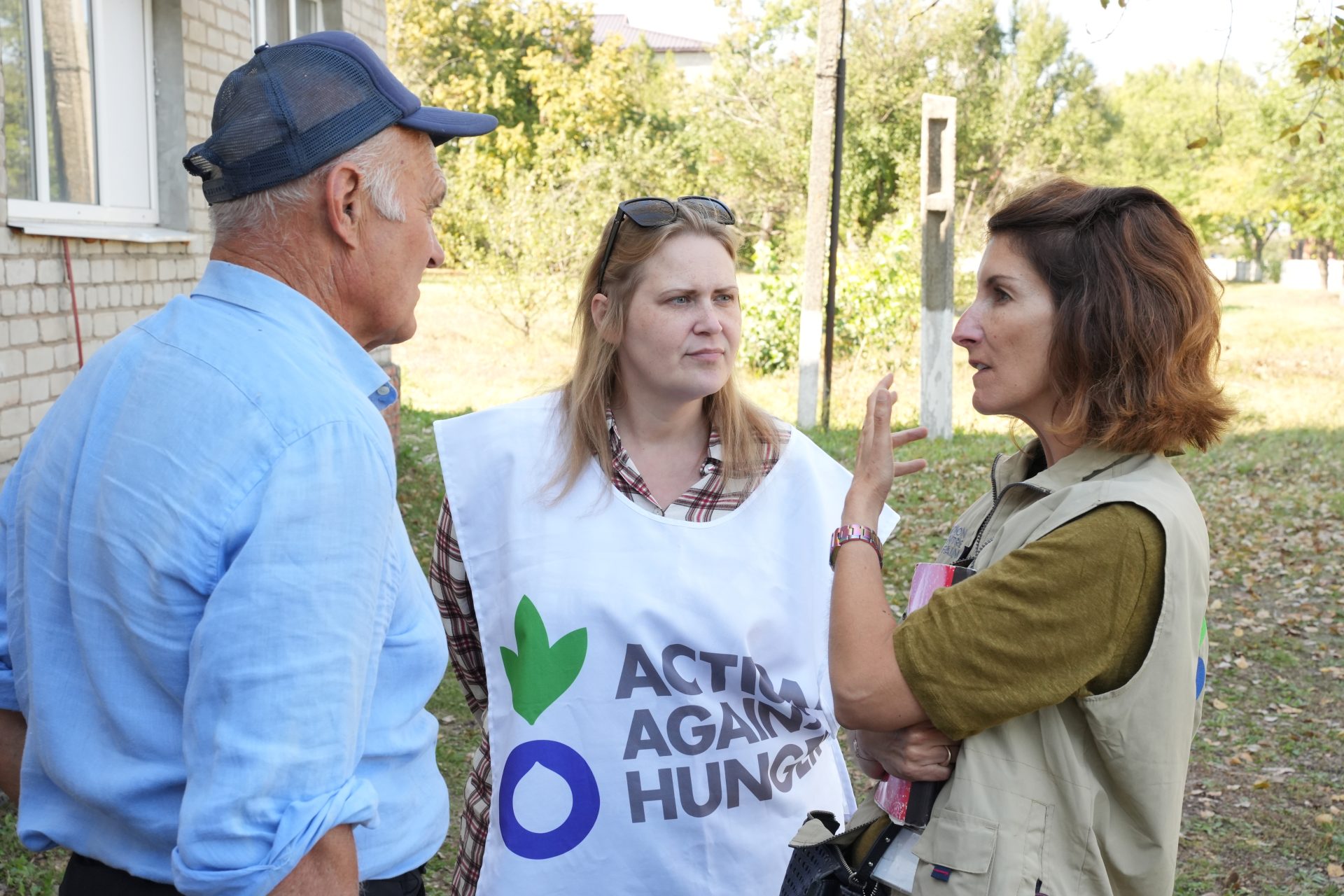As attacks on civilians and essential infrastructure have intensified in the Kharkiv region of eastern Ukraine, humanitarian needs are growing quickly. However, a fall in funding for relief is preventing Action Against Hunger and other humanitarian organisations from adequately responding.
Since the large-scale Russian offensive began on 10 May in the Kharkiv region, more than 6,000 people have been forced to evacuate, most of them to Kharkiv, the country’s second-largest city, which for months has been under attack from missiles, glide bombs and drones. Most of the displaced people in the areas closest to the Russian border are women, children, the elderly and people with disabilities.
To support people affected by this latest Russian offensive, Action Against Hunger and its local partners are implementing an emergency humanitarian campaign in the Kharkiv and Soumy regions, including the distribution of hygiene kits, food vouchers and financial aid. The charity also is supporting primary health centres and psychological and psychosocial support sessions in temporary accommodation centres.
“Action Against Hunger teams are closely monitoring the situation in order to provide humanitarian assistance as close as possible to the needs of the population. Should the conflict intensify and Russian forces gain more territory, more people could be displaced and needs could increase significantly,” explained Eric Fort, Director of Action Against Hunger in Ukraine.
Since March 2022, Action Against Hunger has been supporting displaced populations affected by the conflict in eastern Ukraine, in an increasingly dangerous security context. Located some thirty kilometres from the Russian border, the Kharkiv region is subject to incessant and indiscriminate attacks, which exhaust the population’s coping strategies and jeopardise economic recovery.
After more than two years of conflict, the Ukrainian population is facing increased levels of poverty and aid dependency. Sixty-five per cent of Ukrainian households have seen their incomes fall, and almost 44 per cent are struggling to meet their basic needs, despite receiving monthly government aid of up to 3,000 hryvnias (nearly £60). In all, 40 per cent of the Ukrainian population is in need of humanitarian assistance.
The wave of solidarity that followed 24 February 2022 is showing signs of weakening as the conflict drags on and other crises change the direction of international aid. According to the United Nations, $3.1 billion (£2.4 billion) is required for humanitarian aid in Ukraine, yet only 21 per cent of the appeal has been funded to date. By October 2024, Action Against Hunger anticipates a 90 per cent drop in funding from its largest donor.
“The war is not over; needs continue to grow and public services cannot cope on their own. For humanitarian organisations to be able to plan ahead and provide effective aid, it is important to ensure long-term, predictable funding,” concluded Eric Fort.
Action Against Hunger condemns the attacks perpetrated against the population and civilian infrastructures, including energy infrastructures, which have been deliberately targeted since the beginning of the international conflict in Ukraine. The charity is urging the parties to respect international humanitarian law and is calling for an immediate ceasefire.
About Action Against Hunger in Ukraine
Action Against Hunger works with the most vulnerable people both directly and through Ukrainian partners. From the start of its intervention in March 2022 to February 2024, Action Against Hunger and its partners have helped nearly 960,000 people in the following areas:
- 133,000 people received help to improve their food security through hot meals, food distributions, food kits or cash assistance.
- 610,000 people benefited from hygiene kits and improved access to water thanks to our support for water distribution networks.
- 17,000 people received psychosocial support through psychosocial education and counselling sessions, psychological first aid training or stress management modules.
- 198,000 people received health and nutritional assistance.


